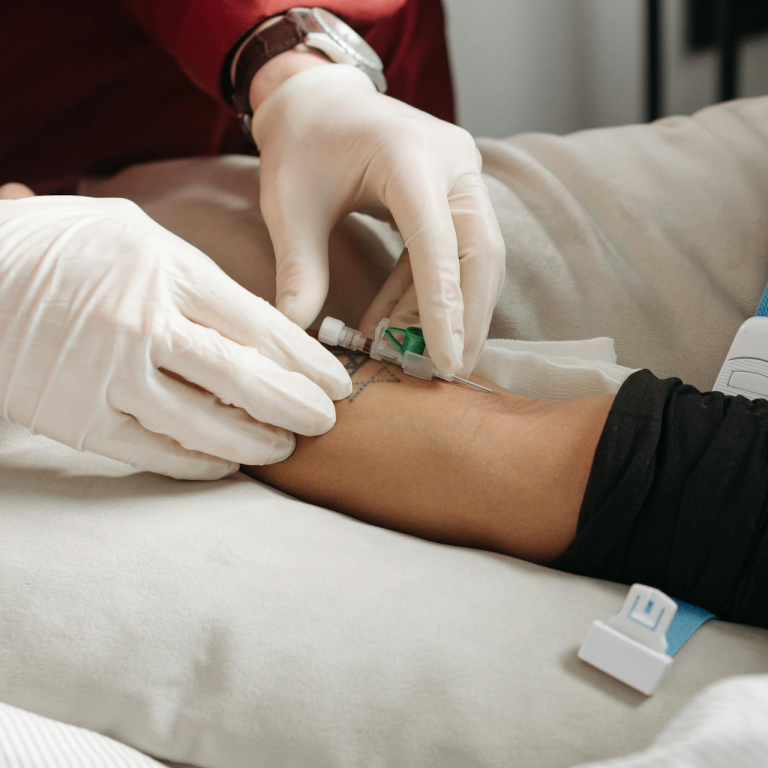Key Takeaways
- Medicare provides comprehensive coverage for a variety of laboratory and diagnostic tests essential for diagnosing and managing health conditions.
- Understanding the types of tests covered, eligibility requirements, and how to maximize benefits can help beneficiaries make the most of their Medicare coverage.
The Essentials of Medicare Coverage for Laboratory and Diagnostic Services
Medicare, the federal health insurance program primarily for individuals aged 65 and older, as well as certain younger individuals with disabilities, plays a crucial role in ensuring access to essential healthcare services. Among these services, laboratory and diagnostic tests are vital for diagnosing and managing health conditions. This article delves into the essentials of Medicare coverage for laboratory and diagnostic services, covering an overview of the coverage, the types of tests included, eligibility requirements, and tips for maximizing benefits.
Overview of Medicare Coverage for Laboratory and Diagnostic Tests
Medicare Part B, which covers outpatient medical services, includes a wide range of laboratory and diagnostic tests. These tests are essential for diagnosing various health conditions, monitoring existing conditions, and guiding treatment decisions. Medicare Part A may also cover certain diagnostic tests if they are part of inpatient hospital care.
Medicare Part B Coverage
Medicare Part B covers diagnostic tests and laboratory services that are medically necessary. These tests must be ordered by a healthcare provider who accepts Medicare assignment. Commonly covered tests include blood tests, urinalysis, tissue specimens, and imaging services like X-rays, MRIs, and CT scans.
Medicare Part A Coverage
Medicare Part A, which primarily covers inpatient hospital care, also includes diagnostic tests performed during a hospital stay. This includes tests conducted in a hospital lab as part of the inpatient treatment plan.
No Cost-Sharing for Certain Tests
One of the significant benefits of Medicare is that certain preventive services and diagnostic tests are covered without any cost-sharing. This means that beneficiaries do not have to pay deductibles, copayments, or coinsurance for these tests, provided they meet the eligibility criteria and the tests are ordered by a Medicare-enrolled provider.
Types of Laboratory Tests Covered by Medicare
Medicare covers a broad spectrum of laboratory tests, which are crucial for detecting and managing various health conditions. These tests help in early diagnosis, monitoring disease progression, and tailoring treatment plans.
Blood Tests
Blood tests are among the most common laboratory tests covered by Medicare. These tests can provide critical information about overall health, detect diseases, and monitor medical conditions. Common blood tests covered by Medicare include:
- Complete Blood Count (CBC): Used to evaluate overall health and detect a variety of disorders.
- Blood Glucose Tests: Essential for diagnosing and monitoring diabetes.
- Lipid Panel: Measures cholesterol levels and assesses cardiovascular risk.
- Thyroid Function Tests: Detects thyroid disorders.
Urinalysis
Urinalysis is a common test used to detect urinary tract infections, kidney diseases, and other metabolic conditions. Medicare covers urinalysis when ordered by a healthcare provider for a medically necessary reason.
Tissue Specimens and Biopsies
Medicare covers the examination of tissue specimens and biopsies, which are critical for diagnosing cancers and other pathological conditions. These tests involve the analysis of cells or tissues removed from the body to identify abnormalities.
Imaging Services
Imaging services are vital diagnostic tools that provide detailed views of the body’s internal structures. Medicare covers various imaging services, including:
- X-rays: Used to detect fractures, infections, and tumors.
- Magnetic Resonance Imaging (MRI): Provides detailed images of organs and tissues, useful for diagnosing conditions like tumors, brain disorders, and spinal cord issues.
- Computed Tomography (CT) Scans: Combines multiple X-ray images to create cross-sectional views of the body, aiding in the diagnosis of cancers, cardiovascular diseases, and infections.
- Ultrasounds: Use sound waves to create images of organs and tissues, commonly used for examining the heart, blood vessels, and abdominal organs.
Diagnostic Services Included in Medicare Coverage
In addition to laboratory tests, Medicare covers a range of diagnostic services that are essential for comprehensive healthcare. These services help healthcare providers make accurate diagnoses and develop effective treatment plans.
Electrocardiograms (EKGs)
Medicare covers electrocardiograms, which measure the electrical activity of the heart. EKGs are essential for diagnosing heart conditions such as arrhythmias, heart attacks, and other cardiac abnormalities.
Bone Density Tests
Bone density tests, also known as DEXA scans, are covered by Medicare to diagnose osteoporosis and assess fracture risk. These tests measure bone mineral density, and help guide treatment decisions for individuals at risk of bone loss.
Diagnostic Colonoscopies
Medicare covers diagnostic colonoscopies for individuals at risk of colorectal cancer or experiencing symptoms such as bleeding, unexplained weight loss, or changes in bowel habits. This procedure involves examining the colon and rectum for abnormalities.
Mammograms
Medicare covers screening and diagnostic mammograms to detect breast cancer. Screening mammograms are routine tests for women, while diagnostic mammograms are used to investigate suspicious findings or symptoms.
Eligibility and Requirements for Medicare Lab and Diagnostic Test Coverage
To qualify for Medicare coverage of laboratory and diagnostic tests, beneficiaries must meet specific eligibility criteria and follow certain requirements.
Medically Necessary Tests
Medicare only covers tests that are deemed medically necessary. This means that the tests must be ordered by a healthcare provider to diagnose or monitor a specific health condition. Routine or elective tests without a clear medical indication may not be covered.
Medicare-Enrolled Providers
Tests must be ordered and performed by providers who accept Medicare assignment. Beneficiaries should ensure that their healthcare providers and the laboratories or imaging centers are enrolled in the Medicare program.
Documentation and Referrals
Proper documentation and referrals are essential for coverage. Healthcare providers must provide adequate documentation justifying the need for the tests. In some cases, referrals from primary care providers to specialists may be required.
Maximizing Medicare Benefits for Laboratory and Diagnostic Services
Maximizing Medicare benefits for laboratory and diagnostic services involves understanding coverage details, choosing the right providers, and staying informed about preventive services.
Utilize Preventive Services
Medicare covers a range of preventive services without cost-sharing, including certain lab tests and screenings. Beneficiaries should take advantage of these services to detect health issues early and avoid more serious conditions.
Verify Coverage and Providers
Before undergoing tests, beneficiaries should verify that the services are covered by Medicare and that the providers are enrolled in the Medicare program. This can prevent unexpected out-of-pocket costs and ensure that the tests are reimbursed.
Keep Track of Test Results
Maintaining a personal health record and keeping track of test results can help beneficiaries and their healthcare providers monitor health conditions and make informed decisions about treatment plans.
Stay Informed About Coverage Changes
Medicare coverage policies can change, so it’s important for beneficiaries to stay informed about any updates or changes to their benefits. Regularly reviewing Medicare information and communicating with healthcare providers can help beneficiaries make the most of their coverage.
Conclusion
Medicare provides comprehensive coverage for a wide range of laboratory and diagnostic tests essential for diagnosing and managing health conditions. Understanding the types of tests covered, eligibility requirements, and how to maximize benefits can help beneficiaries make the most of their Medicare coverage. By utilizing preventive services, verifying coverage, and staying informed, Medicare beneficiaries can ensure they receive the necessary diagnostic care to maintain their health and well-being.
Contact Information:
Email: [email protected]
Phone: 9155553456









